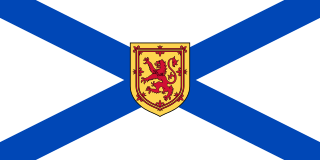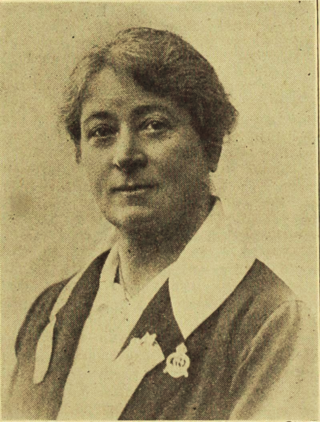| Total population | |
|---|---|
| 5,871 ( 2013 census ) [1] | |
| Regions with significant populations | |
| Canadian people by region | |
| Auckland | 1,956 |
| Wellington | 864 |
| Canterbury | 747 |
| Languages | |
| New Zealand English • Canadian English • Canadian French | |
| Religion | |
| Protestantism · Roman Catholicism | |
| Related ethnic groups | |
| Canadian diaspora, New Zealand Canadians | |
Canadian New Zealanders are New Zealand citizens who are of Canadian descent including immigrants or Canadian-born citizens and residents. Canadian New Zealanders constitute a small minority of New Zealand's population.
During the 19th century, many Canadians from Nova Scotia, New Brunswick and Prince Edward Island settled in New Zealand. The largest group settlement was at Waipu, where Scottish-born Reverend Norman McLeod settled his congregation of Scottish and Nova Scotian emigrants during the 1850s.
Other Canadian settlements included Helensville, founded by John McLeod and named for his wife. And Brunswick, founded by Tamberlane Campbell and named for his home province of New Brunswick.

The Maritimes, also called the Maritime provinces, is a region of Eastern Canada consisting of three provinces: New Brunswick, Nova Scotia, and Prince Edward Island. The Maritimes had a population of 1,899,324 in 2021, which makes up 5.1% of Canada's population. Together with Canada's easternmost province, Newfoundland and Labrador, the Maritime provinces make up the region of Atlantic Canada.

Nova Scotia is a province of Canada, located on its east coast. It is one of the three Maritime provinces and most populous province in Atlantic Canada, with an estimated population of over 1 million as of 2024; it is also the second-most densely populated province in Canada, and second-smallest province by area. The province comprises the Nova Scotia peninsula and Cape Breton Island, as well as 3,800 other coastal islands. The province is connected to the rest of Canada by the Isthmus of Chignecto, on which the province's land border with New Brunswick is located.

The Acadians are an ethnic group descended from the French who settled in the New France colony of Acadia during the 17th and 18th centuries.

Amherst is a town in northwestern Nova Scotia, Canada, located at the northeast end of the Cumberland Basin, an arm of the Bay of Fundy, and 22 km (14 mi) south of the Northumberland Strait. The town sits on a height of land at the eastern boundary of the Isthmus of Chignecto and Tantramar Marshes, 3 km (1.9 mi) east of the interprovincial border with New Brunswick and 65 km (40 mi) southeast of the city of Moncton. It is 60 km (37 mi) southwest of the New Brunswick abutment of the Confederation Bridge to Prince Edward Island at Cape Jourimain.

Pictou is a town in Pictou County, in the Canadian province of Nova Scotia. Located on the north shore of Pictou Harbour, the town is approximately 10 km north of the larger town of New Glasgow.

St. Francis Xavier University is a public undergraduate liberal arts university located in Antigonish, Nova Scotia, Canada. It is a member of the Maple League, a group of primarily undergraduate universities in Eastern Canada.

MacLeod, McLeod and Macleod are surnames in the English language. The names are anglicised forms of the Scottish Gaelic MacLeòid, meaning "son of Leòd", derived from the Old Norse Liótr ("ugly").

Irish Canadians are Canadian citizens who have full or partial Irish heritage including descendants who trace their ancestry to immigrants who originated in Ireland. 1.2 million Irish immigrants arrived from 1825 to 1970, and at least half of those in the period from 1831 to 1850. By 1867, they were the second largest ethnic group, and comprised 24% of Canada's population. The 1931 national census counted 1,230,000 Canadians of Irish descent, half of whom lived in Ontario. About one-third were Catholic in 1931 and two-thirds Protestant.
In the province of Nova Scotia in Canada, Celtic music has played a significant role, both in its traditional forms and fused with other musical styles. Nova Scotia's folk music features traditional tunes brought over from the Scottish Highlands in the late 18th and early 19th centuries, as well as localized forms such as Cape Breton fiddle music. In recent years, a wide variety of other musical genres have emerged in Nova Scotia, which has produced several country music stars such as Hank Snow, Wilf Carter, Anne Murray, and Rita MacNeil.

MacLean, also spelt McLean, is a Scottish Gaelic surname, Eóin being a Gaelic form of Johannes (John). The clan surname is an Anglicisation of the Scottish Gaelic "Mac Gille Eathain", a patronymic meaning "son of Gillean". Gillean means "the Servant of [Saint] John [the Baptist]"), named for Gilleathain na Tuaidh, known as "Gillian of the Battleaxe", a famous 5th century warrior.

Darren is a masculine given name of uncertain etymological origins. Some theories state that it originated from an Anglicisation of the Irish first name Darragh or Dáire, meaning "oak tree". According to other sources, it is thought to come from the Gaelic surname meaning "great", but is also linked to a Welsh mountain named Moel Darren. It is also believed to be a variant of Darrell, which originated from the French surname D'Airelle, meaning "of Airelle". The common spelling of Darren is found in the Welsh language, meaning "edge": Black Darren and Red Darren are found on the eastern side of the Hatterrall Ridge, west of Long Town. In New Zealand, the Darran Mountains are in the south of the country.
John McLeod may refer to:

The history of New Brunswick covers the period from the arrival of the Paleo-Indians thousands of years ago to the present day. Prior to European colonization, the lands encompassing present-day New Brunswick were inhabited for millennia by the several First Nations groups, most notably the Maliseet, Mi'kmaq, and the Passamaquoddy.

The history of Nova Scotia covers a period from thousands of years ago to the present day. Prior to European colonization, the lands encompassing present-day Nova Scotia were inhabited by the Mi'kmaq people. During the first 150 years of European settlement, the region was claimed by France and a colony formed, primarily made up of Catholic Acadians and Mi'kmaq. This time period involved six wars in which the Mi'kmaq along with the French and some Acadians resisted British control of the region: the French and Indian Wars, Father Rale's War and Father Le Loutre's War. During Father Le Loutre's War, the capital was moved from Annapolis Royal, Nova Scotia, to the newly established Halifax, Nova Scotia (1749). The warfare ended with the Burying the Hatchet ceremony (1761). After the colonial wars, New England Planters and Foreign Protestants immigrated to Nova Scotia. After the American Revolution, Loyalists immigrated to the colony. During the nineteenth century, Nova Scotia became self-governing in 1848 and joined the Canadian Confederation in 1867.

Scottish Canadians are people of Scottish descent or heritage living in Canada. As the third-largest ethnic group in Canada and amongst the first Europeans to settle in the country, Scottish people have made a large impact on Canadian culture since colonial times. According to the 2016 Census of Canada, the number of Canadians claiming full or partial Scottish descent is 4,799,010, or 13.93% of the nation's total population. Prince Edward Island has the highest population of Scottish descendants at 41%.
British Canadians primarily refers to Canadians who were either born in or can trace their ancestry to the British Isles, which includes the nations of England, Ireland, Scotland, Wales, and Northern Ireland.

Scottish New Zealanders are New Zealanders of Scottish ancestry or who originate from Scotland. The number of New Zealanders who are descended from Scots is unknown, as the New Zealand census asks for ethnicity, not ancestry, and most have now assimilated; nonetheless, the vast majority of Pākehā, or European New Zealanders are of British and Irish descent, and it has been estimated that 1–2 million New Zealanders have roots in Scotland. This includes many Māori, as a large proportion of which have European roots as well. Most Scottish New Zealanders live in New Zealand's deep southern regions of Otago and Southland, New Zealand, where they have had a substantial influence. Scottish influence on Dunedin, one of New Zealand's most historically important cities was profound, and Presbyterianism is the major religion south of Christchurch. In some parts of Otago and all of Southland, there is a distinct accent known as the "Southland burr", which differs from mainstream New Zealand English for being strongly rhotic.
European Canadians are Canadians who can trace their ancestry to the continent of Europe. They form the largest panethnic group within Canada.